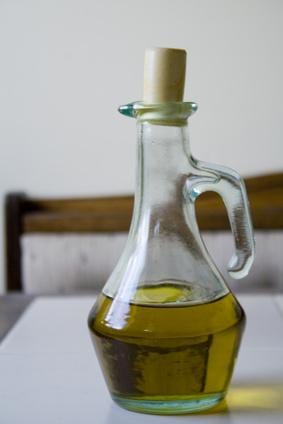You may be able tolower your cholesterol by up to 20 percent in just three months by diet alone and without medication. If you think this sounds like a bad advertisement for a new diet, you are wrong. WebMD reports that it truly is possible to greatly reduce your bad cholesterol levels (up to 20 percent) quickly (in three months) if you make a commitment to eating right. Eating right, however, is not just about eating less fat. Diets that will lower your cholesterol in a few short months include wide ranges of foods you need to eat and eliminate.
Three Months
If you are considered to have low to moderate risk of getting heart disease by your doctor, then typically your doctor will recommend dietary changes as the first measure to prevent a worsening of your condition. Three months is the recommended period to try for lowering your LDL (low-density lipoprotein or bad cholesterol) by dietary changes. After three months, your doctor will likely discuss prescription medications if you have not reached your target cholesterol levels.
Understanding Cholesterol
To accomplish your goal of lowering your cholesterol by diet alone, not only is a commitment to eating healthier foods necessary but so is understanding how cholesterol works. This allows you to choose the right foods. You probably already understand that LDL is the bad cholesterol that clogs arteries, and your doctor will give you a goal of how low you need your LDL to be. At the same time, you need to work on increasing your HDL (high-density lipoprotein), the good cholesterol. HDL helps remove bad cholesterol from your blood.
Eating Fats
A cholesterol-lowering diet includes eating a lot of healthy unsaturated fat. According to WebMD, 25 to 35 percent of your caloric intake each day should come from unsaturated fat. This good type of fat is found in olive oil, nuts and fish. Alternatively, saturated fats should account for less than 7 percent of your daily caloric intake. This means avoiding high-fat milk and cheese, red meat and egg yolks.
Other Foods
The remaining 75 to 65 percent of your daily food needs to come from fresh produce and grains. Good food choices include beans, salads, raw fruits and vegetables, whole grain breads and pastas, and brown rice. The National Cholesterol Education Program recommends choosing foods that are high in soluble fiber such as peas, oats, oranges and pears.
When Diet Is Not Enough
For some, dietary changes alone will not lower your cholesterol as much as your doctor recommends by the end of three months. In these cases, other lifestyle changes may be necessary including exercising, losing weight and cholesterol-lowering medications. However, even with medication, it is still best to maintain healthy eating habits as this may allow you to take a lower dose of medication lowering the risk of side effects and cost of the medication, according to WebMD.
Photo Credit
- Bottle of Olive Oil image by kellykramer from Fotolia.com





